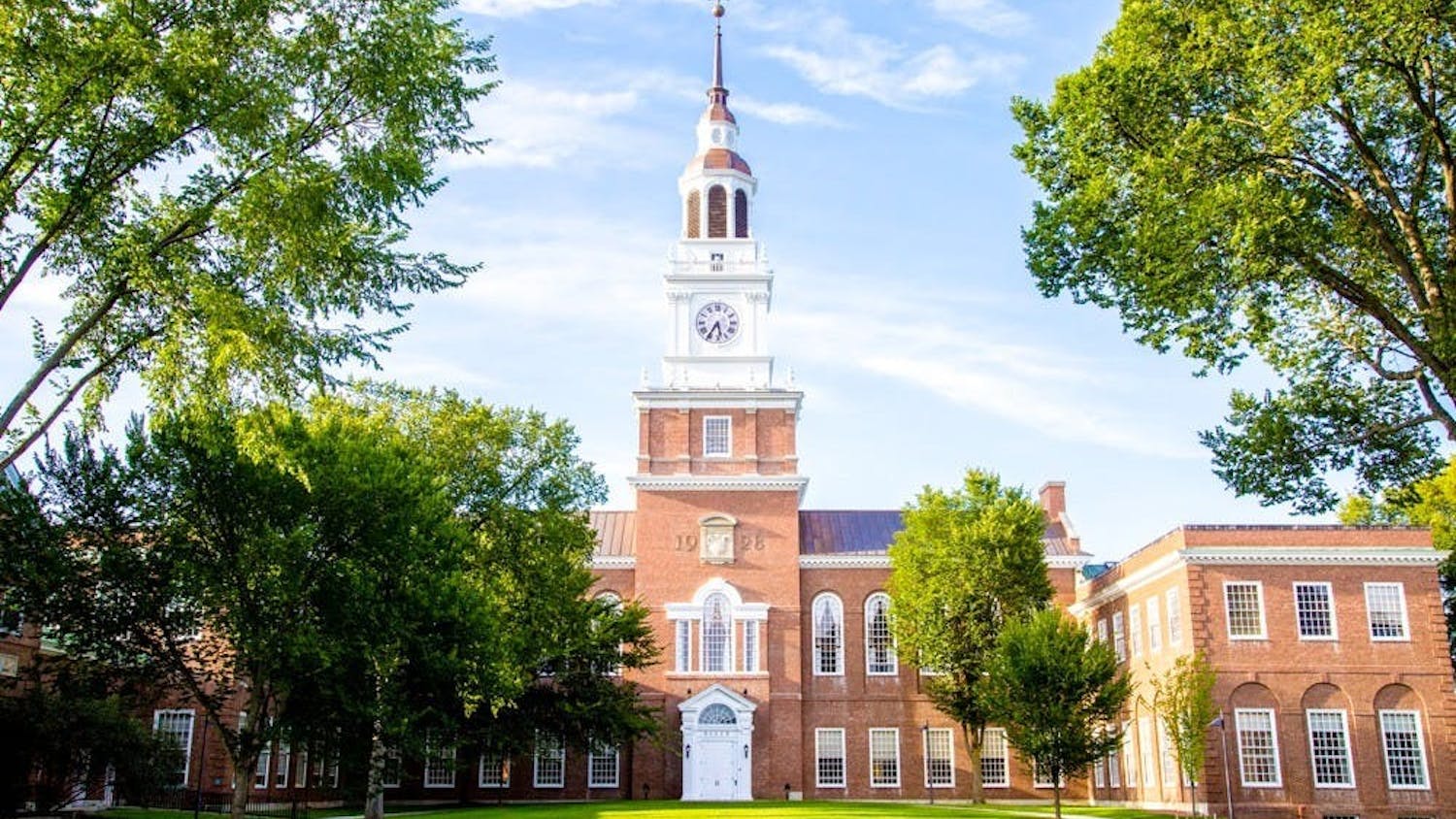Dartmouth is a bastion of wealth, privilege and education, but towns only minutes away are being ravaged by job instability, poverty and addiction. It’s all too easy for students to enjoy the natural beauty of our surroundings and ignore the rest because these problems feel far away from our climate-controlled classrooms. However, Dartmouth and the surrounding communities aren’t immune to epidemics like the opioid crisis sweeping across rural America.
68,557 people died from drug overdoses in the U.S. in 2018. Opioid addiction in particular is responsible for a large portion of these deaths, and it is especially prevalent in New Hampshire, which is one of the top five states with the highest rate of opioid-involved deaths. The rate of overdose deaths involving opioids in New Hampshire is more than twice the national average rate.
A small, but determined, group of students and professors have responded to the opioid crisis by conducting community outreach. Women, gender and sexuality studies professors Pati Hernández and Ivy Schweitzer co-teach WGSS 66.05, “Telling Stories for Social Change,” in which students split time between hands-on interaction with people impacted by opioid use disorder and class time discussing the root causes of these crises.
“Pati’s program is really a program for working with people who are behind what we call ‘invisible walls,’” Schweitzer said. “When you’re in the Upper Valley, what we learned is that [the invisible wall] tends to be alcohol or drug use, and in 2013, it became clear that it was opioids.”
Students have been receptive to this program, although it requires both an academic and an emotional time commitment, according to Emily Bjorkman ’21, who took Hernandez and Schweitzer’s class this past fall. Bjorkman said that she chose to take the class because it integrated social justice with storytelling.
There are substantial layers of privilege and life experience separating students from these community members, and Dartmouth students are often unprepared for the magnitude of the crisises their neighbors are facing, according to Schweitzer.
“Dartmouth students tend to come at it from a privileged perspective of, there’s drug use at Dartmouth, and there’s drug use in their friend groups,” Schweitzer said. “But because there’s money, there’s affluence, there’s networks, there’s healthcare, and they start out with good health in the first place, it doesn’t rise to the level of an issue. The people in White River Junction don’t have affluence, don’t have networks and don’t have health care — they’re starting with all these strikes against them.”
From 2007 to 2019, the class worked with women at Valley Vista Rehabilitation Center, but this past fall, Dartmouth students worked with students at Ledyard High School, many of whose parents have been affected by opioid addiction, according to Schweitzer. Although the age difference was smaller, the communication gap widened, acccording to Bjorkman.
“At the other programs, people were only working because they really wanted to,” Bjorkman said. “With the students, it felt like sometimes they were doing it because they had nothing better to do. When you’re already dealing with all of the normal high school stuff, it’s hard to share about traumatic family backgrounds.”
Schweitzer said that many of the Ledyard students had been expelled from other schools and were considered "difficult to teach." Although they weren’t always open about how the opioid epidemic had directly impacted their lives, Bjorkman found that putting their actions in context made a huge difference.
“Seeing what else was factoring into their lives made it much easier to understand why these things happen, why these students lash out at the adult figures in their lives,” Bjorkman said.
In addition to community outreach through classes, Dartmouth has allocated resources to conduct research on the opioid crisis. The Dartmouth Center for Technology and Behavioral Health, which is supported by the NIH, and uses federal funds to research cutting-edge treatments for opioid use disorder, according to CTBH director Lisa Marsch. Marsch said that Geisel has piloted several new programs, forming partnerships with the New Hampshire state prison system, emergency rooms and even the Manchester Fire Department to give residents better access to treatment. Right now the CTBH is beginning a study on telecare, where 100 percent of medical care is remote, allowing providers to reach rural residents wherever they might be. Marsch said that access to resources like these is really important not just in New Hampshire, but in all of rural America.
“We’ve been able to bring in federal resources to do research,” Marsch said. “We’ve worked so hard to not be perceived as this out-of-touch Ivy League school because we want to be in touch with the needs of the community. I have been so struck and excited by how engaged our clinical partners have been. Everyone is really ready and willing to be part of these solutions.”
Caris is a '23 from Long Beach, CA and is majoring in religion modified with art history. When not editing stories for the Mirror, you can find her playing club soccer, snowboarding at the Skiway or sipping coffee in Sherman Art Library. After college, she plans on attending graduate school in religion.




